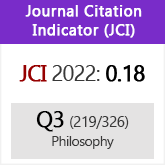The rationality of terror
DOI:
https://doi.org/10.3989/isegoria.2012.046.05Keywords:
Islamic religion, religious identity, rational planning of objectives, Samuel Huntington, modern society, contemporary terrorism, Amartya Sen, Theodor AdornoAbstract
Contemporary terrorism is not an ancestral, irrational, oriental, phenomenon. Nor is it a fanatical reaction of the religions that vindicate a backward society as against the developed societies of the first world. The terrorism of today is a thoroughly modern phenomenon: one of the worst monstrosities of modern society, supplied with rational planning of objectives. A captious interpretation of the Islamic religion endows terrorism with a universal projection among the multitudinous audience of the discontented with the might of that diffuse power that we know as the developed Western world. Al Qaeda does not hesitate to present its war against the West as «a war without quarter» lasting until the infidel Christians are eliminated and the world is subjugated to Islam In the meantime, in a similar conflictive sense, the theoretical campaign of Samuel Huntington across the entire planet responds with a paradigmatic post-cold war, capable of inflaming the international conflict, in a sense no less belligerent with the Anti-Occident than that employed by the radical Imams. As has been pointed out by Amartya Sen, to give priority in this way to the religious identity, the response of the West to international terrorism in calling it «islamic terrorism» is very clumsy, as it magnifies the importance of the religious authorities in detriment to governmental ways and means in the solving of problems.
Downloads
References
Adorno, Theodor y Horkheimer, Max (1944): Dialektik der Aufklärung. Philosophische fragmente, Frankfurt am Main, S. Fischer Verlag (traducción de H. A. Murena, Dialéctica de la Ilustración, Buenos Aires, Sur, 1970, 302 pp.).
Águila, Rafael del (2008): Crítica de las ideologías. El peligro de los ideales, Madrid, Taurus, 207 pp.
Appiah, Kwame Anthony (2005): The Ethics of Identity, Princeton, Princeton University Press, XVIII+358 pp. (traducción Lilia Mosconi, La ética de la identidad, Buenos Aires, Katz conocimiento, 2007, 401 pp.).
Appiah, Kwame Anthony (2008): Mi cosmopolitismo (Entrevista de Daniel Gamper Sachs; traducción Lilia Mosconi), Argentina, Katz Editores, 80 pp.
Baudrillard, Jean (1978): A l'ombre des majorités silencieuses, París, Editions Utopie [traducción Antoni Vicens y Pedro Rovira, «A la sombra de las mayorías silenciosas», Cultura y simulacro, Barcelona, Kairos (3.ª ed. 1987), 193 pp.].
Burleigh, Michael (2008): Blood & Rage. A Cultural History of Terrorism (traducción de Miguel Martínez-Lage y Natalia Rodríguez-Martín, Sangre y Rabia. Una historia cultural del terrorismo, Madrid, Taurus, 2008, 736 pp.).
Camus, Albert (1950): El extranjero (traducción de Bonifacio del Carril), Buenos Aires, Emecé, 2.ª ed., 157 pp.
Dumont, Louis (1966): Homo hierarchicus: essai sur le systeme des castes, París, Gallimard, 445 pp. (traducción española de Rafael Pérez Delgado, Homo Hierarchicus. Ensayo sobre el sistema de castas, Madrid, Aguilar, 1970, 429 pp.).
Geertz, Clifford (1968): «Thinking as moral act», Antioch Review, n.º 28; «The uses of diversity», The Tanner lectures on human values, n.º 7; Sterling M. McMurrin, «Anti-antirrelativism», American Anthropologist, n.º 86, 2 de junio de 1994 (traducción de María José Nicolau La Roda, Nicolás Sánchez Durá y Alfredo Taberna; introducción de Nicolás Sánchez Durá, Los usos de la diversidad, Barcelona, Paidós ICE/UAB, 1996, 127 pp.).
Gray, John (2000): Two faces of Liberalism, Cambridge, Polity Press y Blackwell Publishers Ltd. [traducción de Monica Salomon (2001), Las dos caras del liberalismo. Una nueva interpretación de la tolerancia liberal, Barcelona, Paidós, 167 pp.].
Gray, John (2003): Al Qaeda and what it means to be modern, Londres, Faber and Faber Limited (traducción de Tomás Fernández Aúz y Beatriz Eguibar, Al Qaeda y lo que significa ser moderno, Barcelona, Paidós, 2004, 180 pp.).
Huntington, Samuel P. (1996): The clash of civilizations and the remaking of world order, Nueva York, Simon & Schuster (traducción de José Pedro Tosaus Abadia y Rafale Grasa, El choque de civilizaciones y la reconfiguración del orden mundial, Barcelona, Paidos, 1997, 423 pp.).
Kepel, Gilles (2000): Jihad: Expansion et déclin de l'islamisme, París, Éditions Gallimard (traducción de Marga Latorre, La yihad: Expansión y declive del islamismo, Barcelona, Península, 2002, 797 pp.).
Maalouf, Amin (1998): Les identités meurtrières, París, Éditions Grasset & Fasquelle (traducción de Fernando Villaverde, Identidades asesinas, Madrid, Alianza Editorial, 1999, 201, 174 pp.).
Nietzsche, Friedrich (1974): El Anticristo (introducción, traducción y notas de Andrés Sánchez Pascual), Madrid, Alianza Editorial (11.ª ed. 1986), 155 pp.
Nussbaum, Martha (2007): The Class within. Democracy, religious violence and India' future, Harvard, Harvard University Press (traducción de Vanesa Casanova, India. Democracia y violencia religiosa, Barcelona, Paidós, 2009, 447 pp.).
Rorty, Richard (1991): Objectivity, relativism and truth. Philosophical papers, I, Londres, Cambridge University Press (traducción de Jorge Vigil Rubio, «Liberalismo burgués posmoderno», Objetividad, relativismo y verdad, Escritos filosóficos, I, Barcelona, Paidós, 1996, 301 pp., pp. 267-274.).
Sábato, Ernesto (1941, 1951, 1973): Hombres y Engranajes, Heterodoxia, Buenos Aires y Madrid, Emecé y Alianza Editorial, 200 pp.
Sartori, Giovanni (2002): Pluralismo, multiculturalismo e estranei. Saggio sulla società multiétnica, BUR Biblioteca Universitaria Rizzoli, 182 pp. (traducción de Miguel Ángel Ruiz de Azúa, La sociedad multiétnica. Pluralismo, multiculturalismo y extranjeros, Madrid, Taurus, 2001, 139 pp.).
Sauquillo, Julián (2002): «Como extranjeros entre ciudadanos: multiculturalismo y acatamiento de la ciudadanía por razón de la residencia», Logos. Anuario de Metafísica de la Universidad Complutense, Departamento de Filosofía, Madrid, 399 pp., pp. 105-139.
Schmitt, Carl (1979): Der Begriff des Politischen: text von 1932 mit einen Vorwort und drei corollarien, Berlín, Duncker & Humblot, 124 pp. (versión española de Rafael Agapito, El concepto de lo político: texto de 1932 con un prólogo y tres corolarios, Madrid, Alianza Editorial, 2002, 153 pp.).
Sen, Amartya (2006): Identity and violence: the illusion of destinity, Nueva York, Norton & Company Ltd. (traducción de Verónica Inés Weinstabl y Servanda María de Hagen, Identidad y violencia: la ilusión del destino, Buenos Aires, Katz Editores, 2007, 266 pp.).
Sen, Amartya (2005): The Argumentative Indian. Writings on Indian Culture, History and Identtiiy, Londres, Oxford University Press (traducción de Horacio Pons, India contemporánea. Entre la modernidad y la tradición, Barcelona, Gedisa, 2007, 474 pp.).
Vallespín, Fernando (2007): «Alianza de civilizaciones», Claves de Razón práctica, n.º 157, noviembre, 82 pp., pp. 4-10.
Downloads
Published
How to Cite
Issue
Section
License
Copyright (c) 2012 Consejo Superior de Investigaciones Científicas (CSIC)

This work is licensed under a Creative Commons Attribution 4.0 International License.
© CSIC. Manuscripts published in both the printed and online versions of this Journal are the property of Consejo Superior de Investigaciones Científicas, and quoting this source is a requirement for any partial or full reproduction.All contents of this electronic edition, except where otherwise noted, are distributed under a “Creative Commons Attribution 4.0 International” (CC BY 4.0) License. You may read here the basic information and the legal text of the license. The indication of the CC BY 4.0 License must be expressly stated in this way when necessary.
Self-archiving in repositories, personal webpages or similar, of any version other than the published by the Editor, is not allowed.














